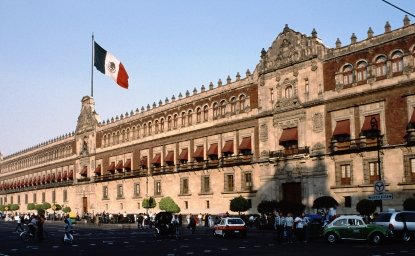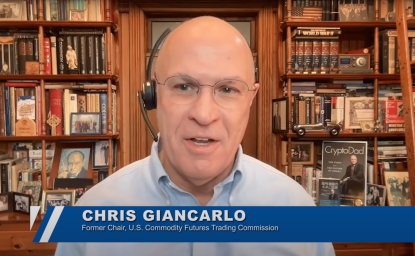In one of the thousands of memes that I have received in recent weeks, the question is “Will the lists of candidates for pluris federal legislators (through lists) register with the National Electoral Institute or the Attorney General?” The question is obviously ironic but reflects the popular sentiment: political parties, particularly Morena, have chosen a bunch of candidates of dubious reputation for their lists of legislators by proportional representation -those who do not owe loyalty to anyone other than their party leaders- leaving behind any pretense of representing the citizenry or being accountable to it, two of the nodal elements of representative democracy.
In its broadest sense, the relevant question is for what and for whom politics are. The issue that concerns me is not the evident abandonment of ideologies in the formation of party lists and coalitions, but the total absence of convictions that define a clear political or even pragmatic orientation. Opportunism has taken over Mexican politics and manifests itself in all areas; opportunism has the immediate virtue of bringing a party or candidate closer to power, but at the cost of risking the little legitimacy that is left to the political system. When that happens, the collapse of the political system could begin, as happened in Venezuela two decades ago.
The problem is aggravated now that Mexican politics have taken a dangerous course in recent months, turning electoral processes into a judicial flight and leading politics into a space conducive to revenge and vendettas. The sum of these two elements -the almost criminal isolation of politicians and the turning of street fights into imprisonment or threat of incarceration by political opponents- entails a deterioration that does not promise anything good.
The first to initiate this path was the PAN with the arrest of a PRI operative in Coahuila for his imprisonment in Chihuahua, a process that would never have occurred in a serious country: kidnapping, imprisonment with an arrest warrant without a name, et cetera. The governor of Chihuahua squeezed the matter to its maximum potential, politicizing it to the utmost without, until now, having published elements that justify his actions. Was it justice or political-electoral promotion?
Neither slow nor lazy, this week the government seemed to respond to the PAN affront with an accusation of money laundering against Anaya, the PAN presidential candidate. As in the case of Chihuahua, the facts are vague, suggesting a political, rather than a motivation of justice. Of course, it is possible that both of these cases do have merit, but given the electoral moment, it is at least equally probable that this is the beginning of a series of capricious actions in the hands of authorities with too much power in their hands and no scruples. The ease with which these arrest warrants are issued suggests that no one is safe. Worse, it signals that the political leaders have opted for an open war at the most delicate moment of national political life and with the weakest -and directionless- electoral authority.
Both cases manifest two things: on the one hand, the defects of the criminal reform in that it makes it possible to initiate criminal proceedings with the mere mention of a protected witness whose name does not have to be published or known. This could be appropriate in a country where there is rule of law and due process is followed, but certainly not in Mexico, which has not even been able to legislate clearly and concisely. On the other hand, these examples show that, in the Clausewitz style, politicized justice has become a means through which political accounts are settled: politics by other means. The criminal reform created a new avenue to distort justice, obscure corruption and politicize daily life even more.
As Corral and his PAN acolytes found, in the new justice system mere presumption of guilt is enough to grant an arrest warrant. With that instrument in the hands of pernicious and unscrupulous rulers, protected witnesses can been invented and, as the French say, voilà!, everything is solved. With this instrument, the door opens to the use of the mechanisms of justice to address political issues and, even worse, to the politicization of justice. And none of our political masters has clean hands in this area.
The big question is where this path takes us. In countries where democracy has led to the independence of law procurement and enforcement, as has been the case in Brazil, their societies have managed to build an alternative footing to the legitimacy of the system, facilitating (at least potentially) the transition to a new, stable, regime. Paraphrasing Joaquín Villalobos, when justice is politicized, it is impossible to seek political agreements, fight corruption or guarantee macroeconomic stability and social inclusion.
The parties, the government and the candidates that promote this anti-political thrust are taking Mexicans on a slippery path that cannot result in anything positive. Opportunism serves for a moment but sooner or later it reverts into crisis, if not chaos. It is still time to avoid such a destructive closure.
The views expressed here are solely those of the author.
Author

Mexico Institute Advisory Board Member; Chairman, México Evalúa; Former President, Consejo Mexicano de Asuntos Internacionales (COMEXI); Chairman, Center for Research for Development (CIDAC), Mexico

Mexico Institute
The Mexico Institute seeks to improve understanding, communication, and cooperation between Mexico and the United States by promoting original research, encouraging public discussion, and proposing policy options for enhancing the bilateral relationship. A binational Advisory Board, chaired by Luis Téllez and Earl Anthony Wayne, oversees the work of the Mexico Institute. Read more

Explore More
Browse Insights & Analysis
The Mexico Institute's 2018 Elections Guide



